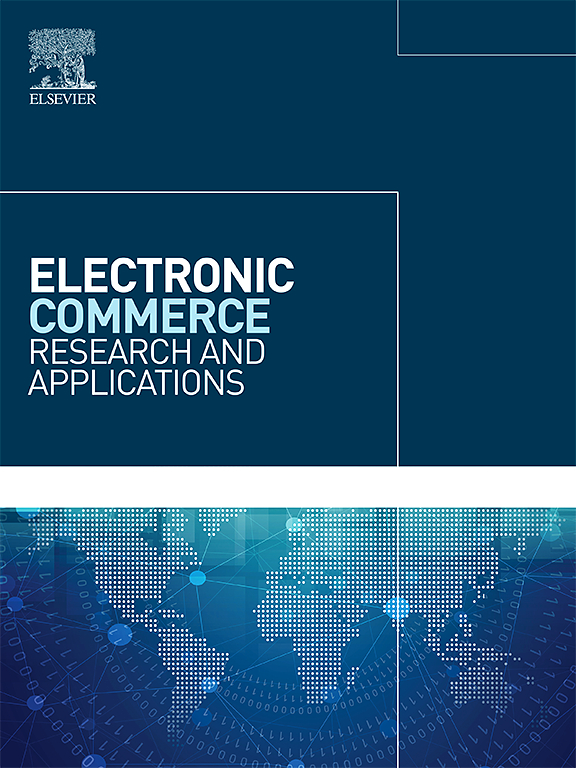Online reviews generated by generative artificial intelligence versus human: A study of perceived differences and user adoption behavior
IF 5.9
3区 管理学
Q1 BUSINESS
Electronic Commerce Research and Applications
Pub Date : 2025-03-19
DOI:10.1016/j.elerap.2025.101497
引用次数: 0
Abstract
Companies in various industries are attempting to integrate Generative Artificial Intelligence (GAI) into their existing businesses. In the e-commerce domain, GAI has shown tremendous potential in generating online reviews. However, existing literature has paid less attention to how consumers respond to GAI-generated reviews versus human-generated reviews. Moreover, little research has explored whether and why consumers are willing to use GAI to generate online reviews. By conducting two experiments, this study investigates how consumers respond differently to GAI-generated reviews versus human-generated reviews and identifies potential factors that influence consumers’ willingness to use GAI to generate reviews. Findings indicate that although there is no significant difference in consumers’ perceptions between human-generated and GAI-generated reviews in terms of review credibility, review richness, and review usefulness, only half of the participants are willing to use GAI to generate reviews. Further analysis results suggest that individuals who consider GAI unethical tend to avoid using GAI. Those with high personal innovativeness are more willing to use GAI to generate online reviews. Our findings deepen the understanding of consumer attitudes toward GAI-generated reviews and provide implications for the deployment of GAI in the online review system.
生成式人工智能与人类生成的在线评论:感知差异和用户采用行为的研究
各行各业的公司都在尝试将生成式人工智能(GAI)整合到他们现有的业务中。在电子商务领域,GAI在产生在线评论方面显示出巨大的潜力。然而,现有文献很少关注消费者对人工智能生成的评论和人类生成的评论的反应。此外,很少有研究探讨消费者是否愿意以及为什么愿意使用GAI来生成在线评论。通过进行两个实验,本研究调查了消费者对人工生成评论和人工生成评论的不同反应,并确定了影响消费者使用人工生成评论意愿的潜在因素。研究结果表明,尽管消费者对人工生成的评论和人工智能生成的评论在评论可信度、评论丰富性和评论有用性方面的看法没有显著差异,但只有一半的参与者愿意使用人工智能生成评论。进一步的分析结果表明,认为GAI不道德的个体倾向于避免使用GAI。个人创新能力高的人更愿意使用GAI生成在线评论。我们的研究结果加深了对消费者对人工智能生成的评论的态度的理解,并为在在线评论系统中部署人工智能提供了启示。
本文章由计算机程序翻译,如有差异,请以英文原文为准。
求助全文
约1分钟内获得全文
求助全文
来源期刊

Electronic Commerce Research and Applications
工程技术-计算机:跨学科应用
CiteScore
10.10
自引率
8.30%
发文量
97
审稿时长
63 days
期刊介绍:
Electronic Commerce Research and Applications aims to create and disseminate enduring knowledge for the fast-changing e-commerce environment. A major dilemma in e-commerce research is how to achieve a balance between the currency and the life span of knowledge.
Electronic Commerce Research and Applications will contribute to the establishment of a research community to create the knowledge, technology, theory, and applications for the development of electronic commerce. This is targeted at the intersection of technological potential and business aims.
 求助内容:
求助内容: 应助结果提醒方式:
应助结果提醒方式:


